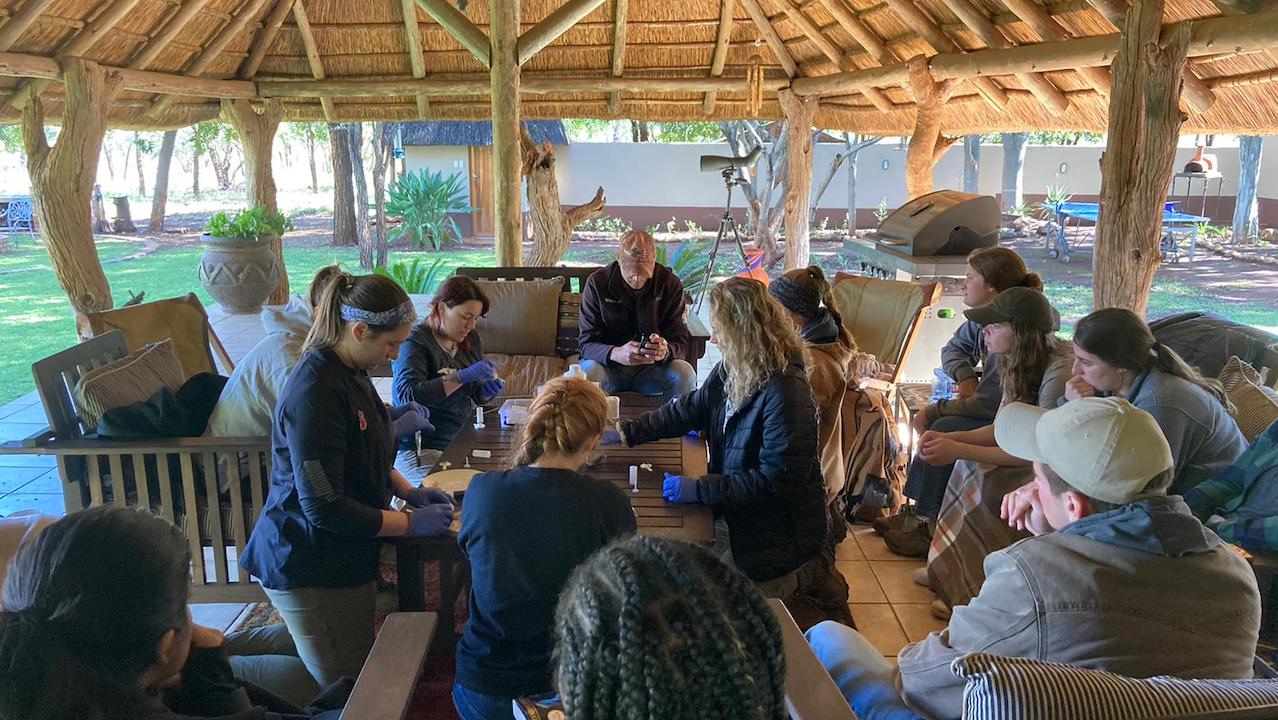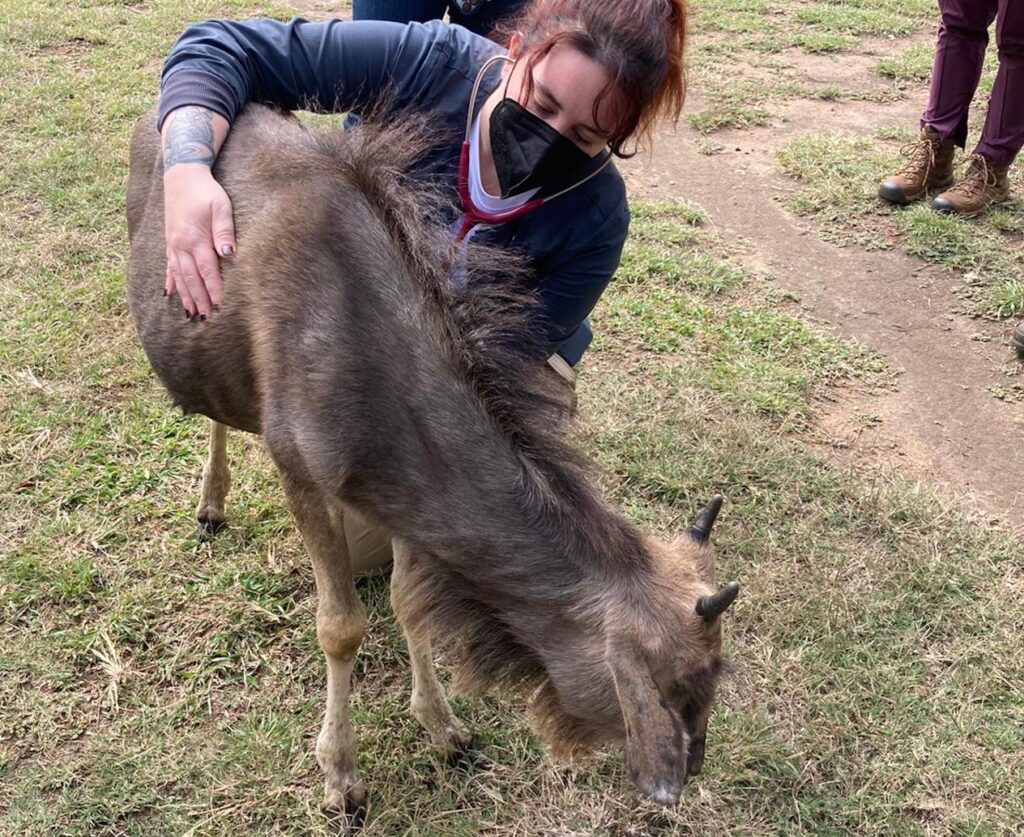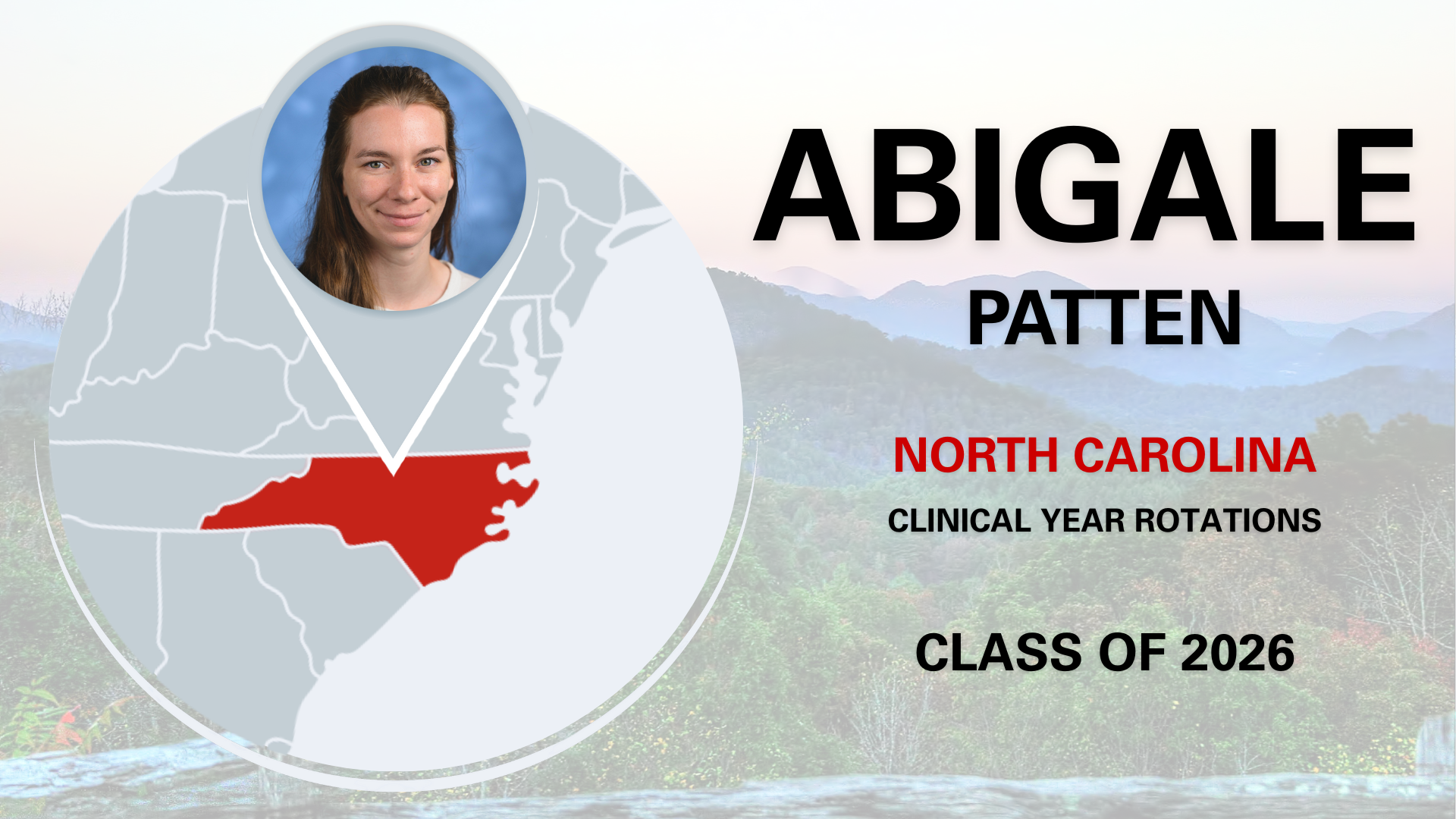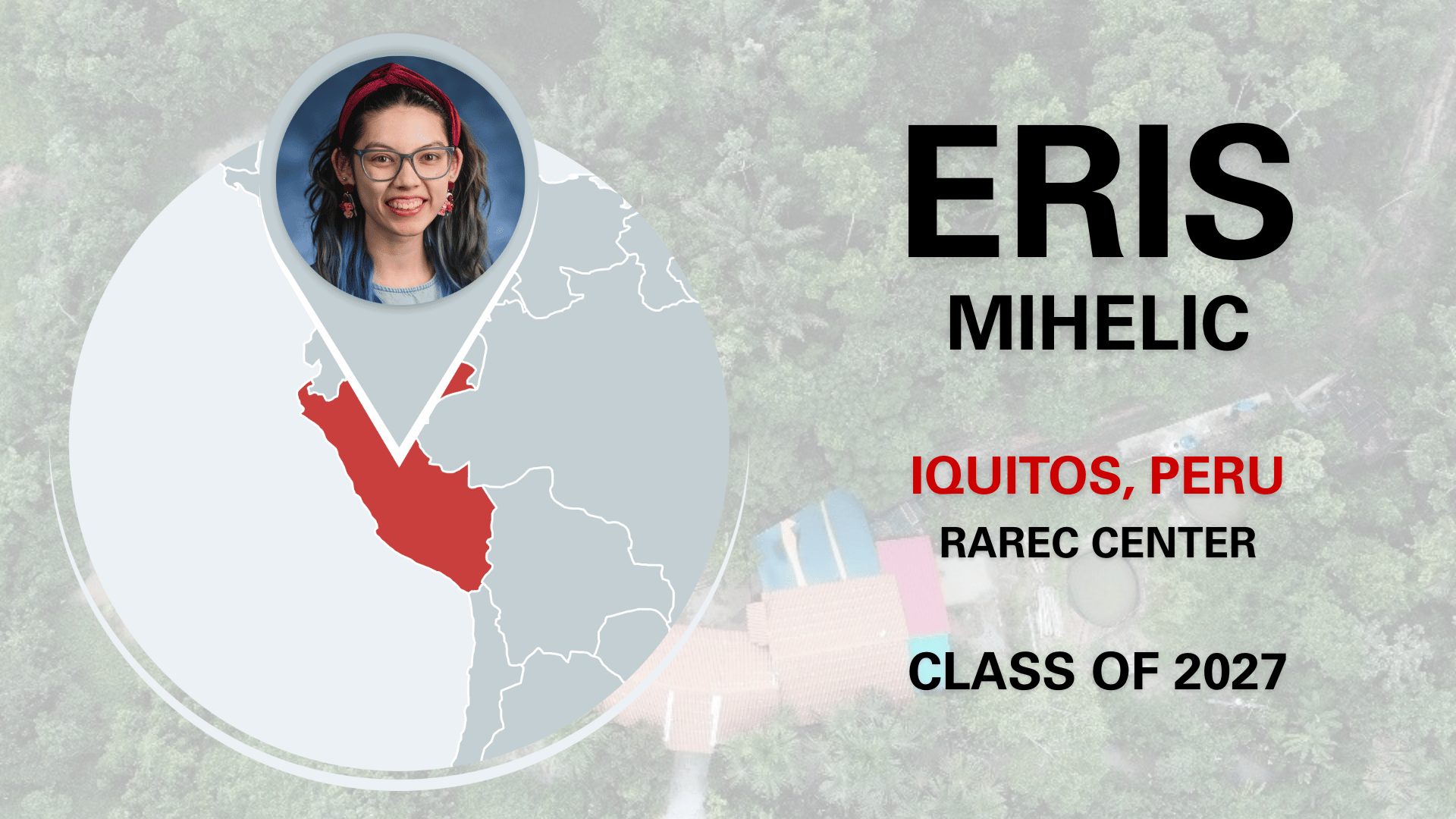Grant Expands Reach of Research Trip to South Africa
Three NC State students, including a third-year CVM student, are working among wildlife in South Africa this month thanks to a seed grant awarded to help expand the involvement of minority students in global field research.

An NC State undergraduate majoring in animal sciences, a recent master’s recipient and a rising third-year student in the NC State College of Veterinary Medicine are working among wildlife in South Africa this month, thanks to an NC State Internationalization Seed Grant awarded to help expand the involvement of minority students in global field research.
Shweta Trivedi, a teaching professor in the College of Agricultural and Life Sciences, leads a hands-on study abroad program to South Africa each spring for undergraduates participating in pre-veterinary studies. Last year, she applied for a $5,000 grant to encourage underrepresented minority students to take part, and she invited Tara Harrison, assistant professor of exotic and wildlife medicine, to participate in the grant.
COVID forced the cancellation of the 2021 trip, but Trivedi and 16 students left for South Africa on May 9, and Harrison and Kayla Bonadie, a rising third-year CVM student from Florida, left May 17. Because of changing pandemic restrictions, Trivedi didn’t find out until February that the course was finally a go.
Todd See, head of the Department of Animal Science, and Sid Thakur, director of global health at the College of Veterinary Medicine, each provided $2,500 to match the $5,000 grant.
In applying for the grant, Trivedi said: “The overall objective … is to build upon the success of our established study abroad program in South Africa and create a pathway for Underrepresented Minority (URM) students to collaborate and engage in field research. The intentional engagement of URM students is resulting from the lack of diversity among students pursuing wildlife conservation and research.”
All of the students, among other veterinary experiences, will be studying the microbiomes of wild rhinos and extracting DNA from them in an effort to learn how to better care for rhinos managed by humans. The rhino research will contribute to the ongoing work of Trivedi’s recent master’s recipient, Christina Burnham. Beatrice Eddy, an undergraduate studying animal science, is the grant’s third beneficiary.
“I wanted to really have these students immerse themselves in field work, performing health assessments, collecting samples, while understanding endangered animals especially the southern white rhinoceros,” Trivedi says. “I strongly believe in globalization of experiences. It changes your perspective, makes you not only respect a new culture but also helps you appreciate what everybody else is doing to do their part to manage and protect wildlife.”
Trivedi partners with SA World Vets in planning the itineraries for the trips.
“The good part about these vets is that nothing is staged,” Trivedi says. “It’s busy from 6 a.m. until 6 p.m.”
Nearly 50 students applied for the study abroad trip, but Trivedi tries to keep the number below 20 so that students have more chances to get hands-on experience. Six CVM students identifying as minorities wrote essays about why they wanted to accompany Harrison, and Bonadie got the spot.

“I had done some box turtle research in the field and shark research in a lab setting working with samples,” Bonadie says. “Now I get to put together the lab side with the field work and really learn start to finish how to integrate it and really get results and data. The opportunity to do vet work on species like this is not very common. Working with wild animals, you have to be ready for things to go wrong or have every detail worked out.”
Trivedi is especially excited that the rhino research and the grant’s reach will continue even after the students return. Burnham, Bonadie and Eddy will be able to work on the DNA extractions in the lab of Thakur, who earned his Ph.D. in population medicine at NC State.
“These are samples from the free-ranging southern white rhinos that they worked with,” Trivedi says. “They’ll learn how to use the R software to make sense of the genomic data of the microbiome. This is a beautiful collaboration.”
“I strongly believe in globalization of experiences. It changes your perspective, makes you not only respect a new culture but also helps you appreciate what everybody else is doing to do their part to manage and protect wildlife.”
-Shweta Trivedi, teaching professor in the College of Agricultural and Life Sciences
Harrison loves the idea of broadening her student’s understanding of what research entails.
“Not only research, but research in a developing country, field research in a different country,” Harrison says. “There may be Wi-Fi. There may not. You might have to drive to a nearby town. I know about technology enough to know to have plans A through Z ready.”
Trivedi is the founding director of the Veterinary Professions Advising Center or VetPAC at NC State and teaches anatomy and physiology to animal science majors.
“There will be teaching and veterinary training going on for my 16 students,” Trivedi says. “I simultaneously will be doing field work. I got my Ph.D. at the vet school, and it’s like life comes full circle. I got trained there, and now I’m getting to serve the students and the institution that trained me. It’s nice to be able to give back.”
Follow the CVM on Twitter @NCStateVetMed, on Facebook @NCStateVetMed and on Instagram @NCStateVetMed for occasional updates from South Africa.


